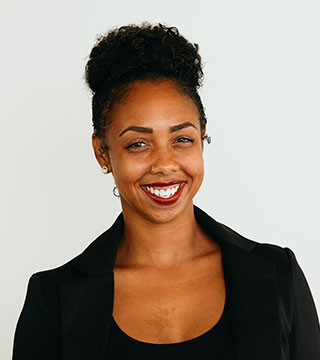
Chey Gaston-Lewis
Head Resident Advisor
The daughter of a youth pastor, Chey Gaston-Lewis grew up helping high school kids. “We were always immersed,” she says, “helping with whatever program he was doing, particularly with inner city youth in Bakersfield.”
Now, as a high school math teacher and athletic director for a public magnet school in South Los Angeles, Gaston-Lewis continues that very same work, just at a much higher level. “I always wanted to teach in the inner city,” she explains. Her dream is to open a boarding school for inner city kids.
So when the Bovard Scholars launched at her alma mater — she has a B.A. in Psychology and an M.A. in Secondary Education and Teaching from USC — she says she couldn’t not be part of it. “I fell in love with the idea of bringing students who are of a low-income, minority background on any other day, and have them live on a prestigious campus and experience all of it, with the idea that they’re getting into this type of university,” she says. “This is why I teach.”
Gaston-Lewis’s role, as the head resident advisor, is to help Bovard Scholars settle in to their three-week stay on campus, and navigate the dorms, activities and workload. “I’m like the mom or big sister that makes sure they have everything they need,” she says.
But it’s also more than that.
“One of the things we talk to them about a lot is the whole idea of imposter syndrome,” she explains. “A lot of our kids, when they get to this program, it’s the first time that they’re amongst peers with the same high GPAs, who are passing standardized tests at the same level. They start asking, Why am I here? I shouldn’t be here.”
But Gaston-Lewis finds she can talk them through it, because it was her own story as well. “Coming from a low-income background, working really hard to get where I was, having personal struggles and setbacks that the average person doesn’t experience, that was also my struggle,” she says. “Being able to experience that not as a setback but as a challenge made me who I am.”
Gaston-Lewis counters imposter syndrome not just with her own story, but by letting the scholars know that they’re right where they need to be. “We picked them for a reason,” she says. “We know they’re capable of getting into their dream schools.”


